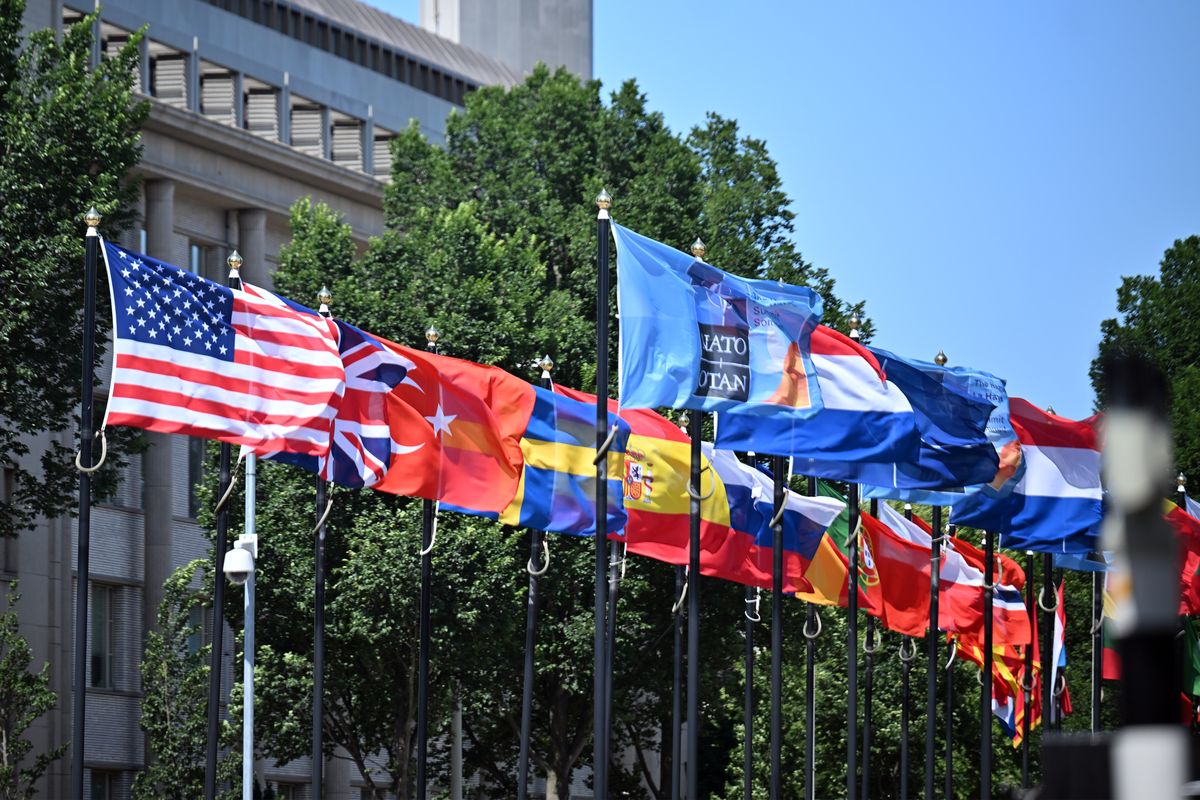Cipher Brief network expert Michel Flournoy, former senior Obama administration defense official, offered advice to her former European counterparts at the German Marshall Forum in Brussels this month on how to manage their anxiety in the age of President Donald Trump – advice made all the more timely, given Thursday’s announcement that National Security Advisor Lt. Gen. H.R. McMaster will be replaced by Iran hawk John Bolton. Bolton has denounced the Iran nuclear deal, which European leaders have been trying to save.
The United States and Europe still have common interests in critical areas, including national security: deterring aggressive Russian behavior in and around Europe; countering violent extremism and terrorism; preventing the proliferation of WMD; and dealing with climate change, to name a few. We still need to cooperate to address shared threats and challenges. Neither side of the Atlantic can be effective in taking on these challenges alone.
Yet, the election of President Donald Trump – and the associated changes in both the style and substance of U.S. policy – has caused many to question whether the United States is still a reliable partner – whether Europe can work with an administration that seems bent on departing from the normative consensus that has been the bedrock of the transatlantic alliance for decades.
Given the stakes, those of us on both sides of the Atlantic who believe that the transatlantic alliance is still essential to both European and U.S. security long term should take the following approach:
To the extent we can, we should treat these four years as an aberration to be managed rather than an irreparable rift that will redefine the relationship forever. Any mainstream Democratic or Republican president elected in 2020 will likely want to revive the bipartisan consensus. Let’s not make it impossible for the next president to recover and reset such an invaluable relationship.
More specifically, I’d recommend a handful of practical steps in the intervening period:
Maintain as much momentum as possible in important areas of cooperation by keeping them under the radar of presidential decision-making. For example, we should continue to strengthen deterrence versus Russia and reassurance of front-line NATO allies through the European Reassurance Initiative, working the details at the Defense Department-Ministry of Defense level. Similarly, we should continue our strong habits of cooperation on counterterrorism and countering weapons of mass destruction across our intelligence and law enforcement communities.
We should seek to limit and contain the damage in areas where the Trump administration takes actions with which Europe disagrees. Take the recently announced tariffs on steel and aluminum. Europe should seek to negotiate with the administration before the details are finalized. And if countermeasures become necessary, the European Union should respond in a limited, proportionate manner rather than escalating to an all-out trade war with the United States.
We should work with other actors in the U.S. system to continue to move forward on shared goals. For example, work directly with the CEOs, U.S. governors and big city mayors that have pledged to uphold U.S. commitments on climate under the Paris Accord despite Trump’s pronouncements that the United States government will no longer be bound by it. Engage with members of Congress working to try to keep President Trump in the Iran deal by increasing pressure on Iran regarding its ballistic missile activities and exploring how to extend the deal’s timelines.
We should avoid overreacting to Trump’s Tweets and off the cuff remarks. As our friends in the U.K. often say, we need to “Keep calm and carry on.” Wait until official policy is made or actions are taken before reacting, and even then try not to overreact.
We need to double down on investing in sources of resilience in the transatlantic relationship: educational exchanges, technology collaboration, Track II dialogues, civil society interactions, and teaching the history of NATO and EU, reminding people of the value of transatlantic ties.
One final thought: Trump is not the sole problem in and of himself. Rather he is a symptom of more fundamental divisions within our societies, in the U.S. and in Europe: the increasing polarization of our societies and politics, the disruption of certain economic sectors and parts of the labor market due to increasing automation and technological innovation, the rise of anti-globalization/anti-immigrant/anti-free trade sentiments, and the emergence of populist candidates and parties as serious political forces to be reckoned with. These are the fundamental challenges we face on both sides of the Atlantic.
The questions for all of us are: How do we grapple with these trends? How do we protect and also adapt our governance and policies to address core grievances? What has worked? What hasn’t? Is there an opportunity to share our thoughts and lessons learned on these more fundamental issues? And most importantly, how do we forestall threats to democracy and a return to more authoritarian leaders/demagogues?
Let's not treat this period of uncertainty and anxiety as something that is necessarily going to define our entire future. Let's fight that, let's push back against it, and let's manage it where we must.














